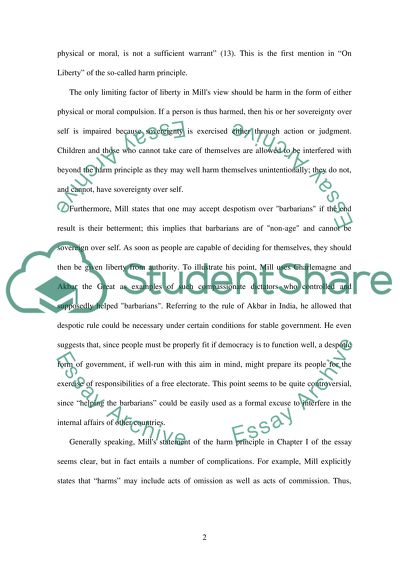Cite this document
(“Analysis Of On Liberty By John Stuart Mill Book Report/Review”, n.d.)
Analysis Of On Liberty By John Stuart Mill Book Report/Review. Retrieved from https://studentshare.org/politics/1531734-analysis-of-on-liberty-by-john-stuart-mill
Analysis Of On Liberty By John Stuart Mill Book Report/Review. Retrieved from https://studentshare.org/politics/1531734-analysis-of-on-liberty-by-john-stuart-mill
(Analysis Of On Liberty By John Stuart Mill Book Report/Review)
Analysis Of On Liberty By John Stuart Mill Book Report/Review. https://studentshare.org/politics/1531734-analysis-of-on-liberty-by-john-stuart-mill.
Analysis Of On Liberty By John Stuart Mill Book Report/Review. https://studentshare.org/politics/1531734-analysis-of-on-liberty-by-john-stuart-mill.
“Analysis Of On Liberty By John Stuart Mill Book Report/Review”, n.d. https://studentshare.org/politics/1531734-analysis-of-on-liberty-by-john-stuart-mill.


